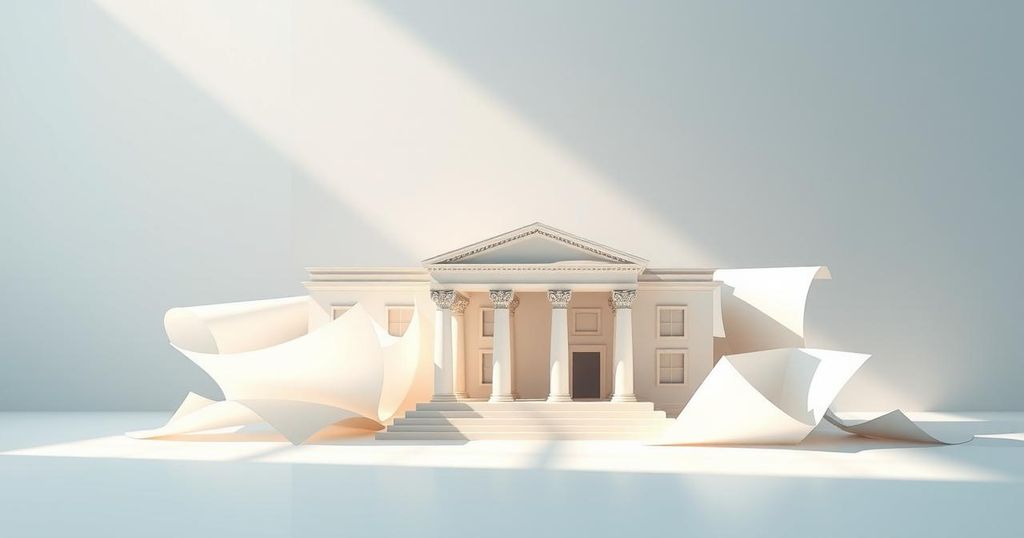Lebanon’s cabinet has launched reform initiatives in foreign policy, industry, and energy after overcoming a political deadlock. Led by Prime Minister Nawaf Salam, the cabinet aims to address urgent financial needs and enhance infrastructure. The international community welcomes these measures, underscoring the necessity for stability and commitment to reforms to attract foreign assistance.
Recently, members of Lebanon’s cabinet, under Prime Minister Nawaf Salam, introduced an array of reform initiatives following a two-year political impasse. These initiatives cover crucial sectors such as foreign policy, industry, and energy, addressing pressing challenges including financial rehabilitation and reconstruction efforts.
The newly formed 24-member cabinet is determined to implement urgent financial reforms and maintain border stability amidst ongoing regional tensions. The international community has expressed support for these efforts, highlighting their significance in restoring Lebanon’s stature internationally.
Foreign Minister Youssef Raji articulated the government’s resolve to establish an independent foreign policy, aiming to reintegrate Lebanon into both the Arab world and the international community under the leadership of President Joseph Aoun and Prime Minister Nawaf Salam.
Industry Minister Joe Issa El Khoury emphasized the importance of establishing a conducive business environment, leveraging Lebanon’s position within the Arab region to revive the economy. He noted the necessity of a secure atmosphere for businesses, warning against alienating neighboring nations.
El Khoury acknowledged the security challenges posed by Israeli airstrikes and the situation along the Syrian border, urging for the prompt implementation of UN Security Council Resolution 1701 to ensure regional stability.
In the energy sector, Minister Georges Sadi proposed a phased strategy to tackle the national electricity crisis, focused on short-term enhancements followed by comprehensive structural reforms. Sadi stated, “The formation of a regulatory body is not just a legal requirement; it’s essential for securing international support.”
Sadi further explained that while welcoming support from allies such as Saudi Arabia, Qatar, and France, Lebanon must demonstrate its commitment to reform through effective regulatory frameworks and clear strategic plans. He outlined intentions to expand power plants while integrating renewable energy sources to address national energy demands.
Ultimately, Sadi connected energy stability to broader national recovery, asserting, “Without stability, we cannot finance projects or implement comprehensive reform.” This underlines the interconnectedness of Lebanon’s economic rejuvenation and its energy sector challenges.
In summary, Lebanon’s cabinet has unveiled a comprehensive reform agenda aimed at revitalizing key sectors, particularly foreign affairs, industry, and energy amid a backdrop of political stability. The international community’s support is crucial, yet Lebanon acknowledges that internal reforms and a stable environment are essential for attracting international aid and fostering economic recovery.
Original Source: www.intellinews.com




